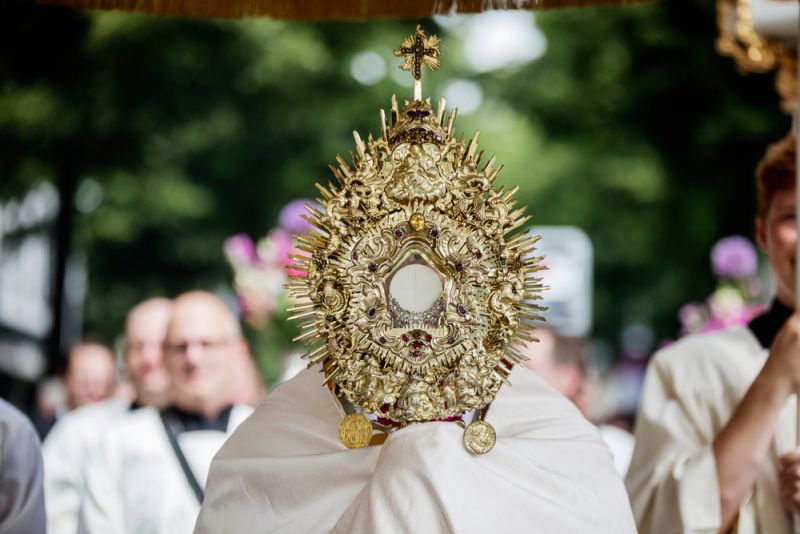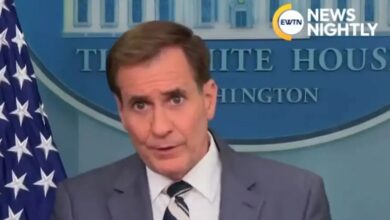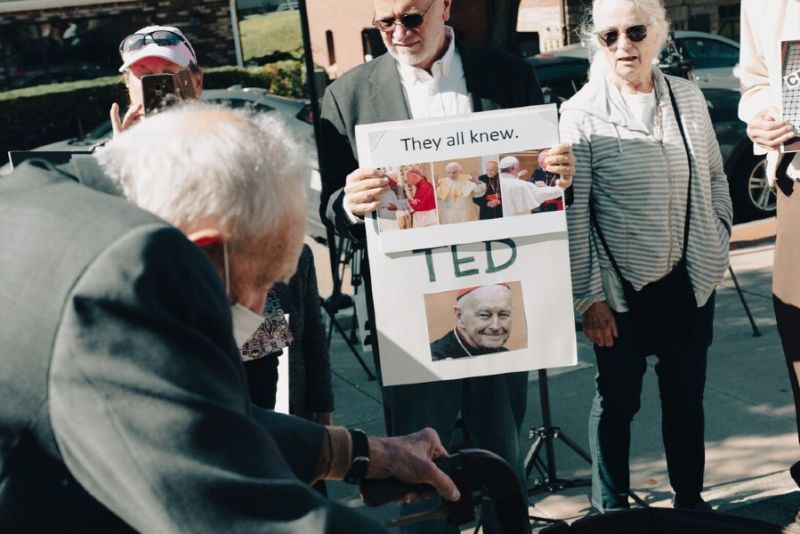109 years after genocide, Armenia faces another existential threat
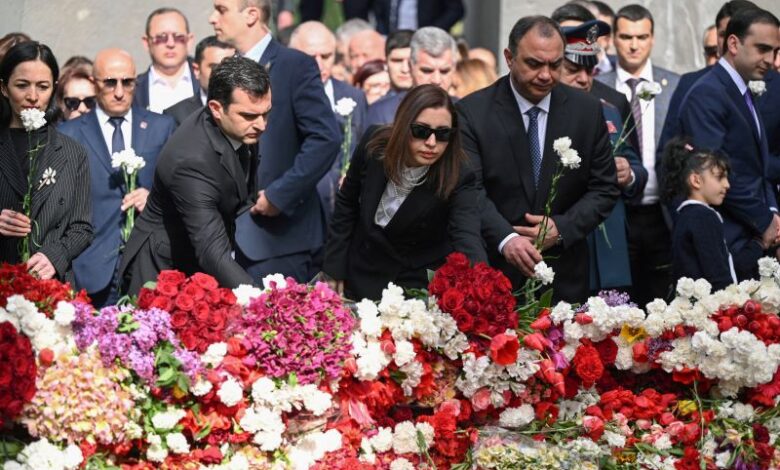
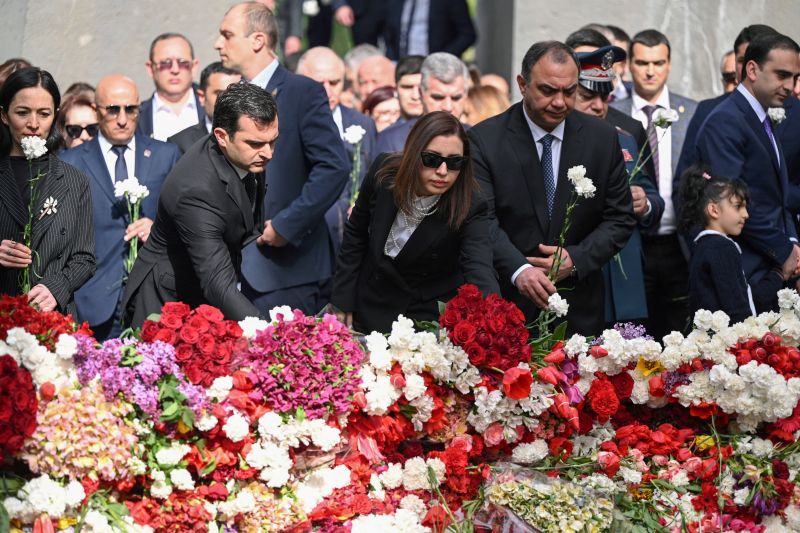 Attendees lay flowers at the Tsitsernakaberd Armenian Genocide Memorial in Yerevan to mark the 109th anniversary of World War I-era mass killings on April 24, 2024. / Credit: KAREN MINASYAN/AFP via Getty Images
Attendees lay flowers at the Tsitsernakaberd Armenian Genocide Memorial in Yerevan to mark the 109th anniversary of World War I-era mass killings on April 24, 2024. / Credit: KAREN MINASYAN/AFP via Getty Images Washington, D.C. Newsroom, Apr 26, 2024 / 18:00 pm (CNA).
As historians and human-rights activists mark the 109th anniversary of the Armenian Genocide this week, some are warning that Armenia is once again facing another existential threat.
Speaking on “EWTN News Nightly” on Wednesday, Simone Rizkallah, an Armenian activist with the Philos Project, said that “this feels less like a remembrance and more like a truly historical event that we are in the midst of.”
The Armenian Genocide was carried out by Ottoman Turks in 1915 and resulted in the deaths of some 1.5 million Armenian Christians, according to historians. Though recognized as a genocide by the U.S. and more than 30 other countries, Turkey denies that characterization.
The massacre took place over a hundred years ago. But it has been less than a year since Azerbaijan, another Muslim neighbor of Armenia and an ally of Turkey, unleashed a violent takeover of the Nagorno-Karabakh region, resulting in more than 100,000 Armenian Christians fleeing their homes. The mass exodus of ethnic Armenians has been called a case of “ethnic cleansing” by some leaders in the international community.
Rizkallah fears that rather than marking the end of Azerbaijan’s aggression, Nagorno-Karabakh was just the beginning.
“Azerbaijan and Turkey are now continuing to threaten Armenia proper and have made it very clear that they will not stop at taking Artsakh and Nagorno Karabakh, which they have already done, but they will take all of Armenia eventually,” she said.
Why does it matter?
Armenia is a small country in the South Caucasus that has a population of approximately 2.9 million. It is a deeply religious country and one of the few Christian nations in the Near East.
According to Rizkallah, Armenia is the oldest Christian nation in the world, having officially converted to Christianity in the year 301. Since then, the people of Armenia have clung to Christianity, maintaining the light of the faith in the region throughout the centuries.
But now, sandwiched between Turkey and Azerbaijan, two Muslim nations with much larger populations, economies, and militaries, Armenia’s very existence appears to be threatened.
Last October the Azerbaijani Ministry of Foreign Affairs told CNA that there were “real chances” of peace with Armenia “in a short time.”
On April 23 Armenian Prime Minister Nikol Pashinyan agreed to cede four border villages to Azerbaijani control. Despite protestations from many Armenian citizens, Pashinyan said that the concessions were the only way to avoid direct war with Azerbaijan.
Nagorno-Karabakh a warning of what is to come?
Lara Setrakian, an Armenian reporter and human rights activist, told CNA that though Armenia has attempted to integrate and shelter the Nagorno-Karabakh refugees, seven months after fleeing, they are largely living in poverty with “very little hope of seeing their homes again.”
“Some of these people have horrific injuries, many have lost family members,” she said. “They’ve been through quite a lot, some of them came in showing signs of malnutrition. So, the rehabilitation of these people has been a massive task.”
Meanwhile, Azerbaijan continues to imprison members of Nagorno-Karabakh’s ethnically Armenian former leadership.
Ruben Vardanyan, former state minister of Nagorno-Karabakh, is one such prisoner who is being kept in complete isolation in Baku, Azerbaijan’s capital. According to an April 25 statement by his family, Vardanyan has been kept in “worsening prison conditions” with very little contact with the outside world.
Setrakian believes that all of Armenia is similarly “in a very tough spot.”
She explained that there has been a “significant” military buildup by Azerbaijan in strategic places along the two countries’ border and said that Pashinyan’s concession would likely not be the last.
“Armenia is being squeezed by the threat of force and the continual use of force on its borders,” she said.
What’s next?
Until recently, nearby Russia had helped to maintain the balance of power in the region. But on April 17, a Russian peacekeeping force stationed near the Azerbaijan-Armenia border since 2020 withdrew in what was seen as a concession to Azerbaijan.
Setrakian believes that Russia has grown more reliant on Azerbaijani oil after it invaded Ukraine, prompting it to be more permissive of Azerbaijani aggression, with disastrous results for Armenia.
“Armenia has stepped into a phase of making concessions and Azerbaijan has been asking for more and more,” she said.
It has gotten to the point that Azerbaijani President Ilham Aliyev has begun referring to Armenia as “western Azerbaijan” and is claiming that Armenia has “always” been a part of Azerbaijan.
“This is really very disturbing,” Setrakian said, adding that “it’s exactly what Putin did in Ukraine” and that “it legitimizes going for any swath of modern-day Armenia that they consider to be their historical claim.”
Activists urge U.S. intervention
While the U.S. has expressed solidarity with the Armenian people and sent some aid during the Nagorno-Karabakh crisis, many activists feel there is more that could be done to help the Armenian Christians.
One way activists feel the U.S. could do more is by sanctioning Azerbaijan and cutting off all delivery of military aid. According to the Government Accountability Office, the U.S. Department of Defense sent $ 164 million worth of “security aid” to Azerbaijan.
Sam Brownback, former U.S. ambassador-at-large for international religious freedom, believes that assistance needs to end.
He led a rally in front of the White House on Wednesday in which he called on President Joe Biden and Congress to stop sending weapons to Azerbaijan, saying: “We can’t let a repeat of 1915 happen again on our watch.”
Meanwhile, Alexis Wilkins, a political commentator for PragerU and granddaughter of Armenian immigrants, also told CNA that the U.S. should intervene to help the Armenians.
Wilkins said that to her the Armenian Genocide is personal, explaining that while the world calls it a “genocide,” she calls it “the reason my Papa didn’t know any of his aunts or uncles.”
She admitted that while there are many factors at play in global politics, she believes that “strong leadership and intervention will be necessary” to avoid a similar disaster.
“The continuation of not delineating right from wrong is not a victimless crime,” she said. “Not 109 years ago, and not now today. True peace is through strength, and exhibiting weakness in this regard is essentially to look evil in the face and say: ‘Go ahead.’”


